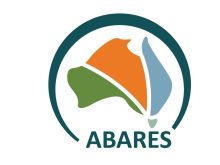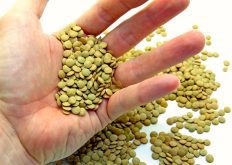Canada’s livestock and crop producers are expected to see improved trade opportunities and streamlined clearances and product approvals through a pair of joint action plans with the U.S.
Prime Minister Stephen Harper and U.S. President Barack Obama, meeting Wednesday in Washington, D.C., laid out a list of specific goals for what they’ve dubbed their joint action plans on regulatory co-operation, and on perimeter security and economic competitiveness.
Most of the goals specific to the ag sector are laid out in the plan on regulatory co-operation, in which Ottawa says Canada and the U.S. will "align their regulatory approaches… while not compromising our health, safety or environmental protection standards."
Read Also

U.S. grains: Corn slips from six-week high, soybeans down on China demand worries
U.S. corn futures fell from a six-week peak on Wednesday on profit-taking and technical selling after three sessions of gains as an expected record-large U.S. harvest weighed on the market.
Where agrifood is concerned, the regulatory co-operation plan as announced Wednesday focuses on food safety, ag production and marketing.
From a food safety standpoint, the plan on regulatory co-operation calls for:
- common approaches to food safety systems, reducing the need for each country to conduct inspection activities in the other country;
- streamlined requirements, and where possible, fewer "duplicative regulatory activities" in meat and poultry inspection systems;
- ensuring food safety testing in one country is acceptable to regulators in both countries;
- clearing the path for more cross-border use of laboratory results; and
- streamline export certifications for meat and poultry, and simplifying import and administrative procedures.
"Acknowledging the high food safety standards on both sides of the border provides an opportunity to focus on areas of higher risk, while removing unnecessary burdens on food producers," the federal government said Wednesday.
"Although each country independently administers its regulations — and there can be differences in approach — whenever possible, efforts should be focused on regulatory alignment recognizing common health and safety outcomes."
The two countries’ requirements and approvals for farm inputs such as pesticides and veterinary drugs are already "highly aligned," the federal government said, but the joint action plan is expected to:
- allow for simultaneous submission and joint review of pesticide applications, improving access to crop protection products and cutting back any spread between the two countries’ pesticide residue limits and tolerances;
- "further align" approvals for veterinary drugs for livestock, also cutting back any spread between the two countries on drug residues and tolerances;
- set up a "North American perimeter approach" for plant protection, to "collectively protect plant resources" and streamline certifications for shipments across the Canada-U.S. border; and
- work on a common approach for zoning, to help prevent spread of foreign animal diseases.
On the matter of cross-border marketing of goods, the plan also calls for the two countries to set up "comparable approaches" in protecting fruit and vegetable suppliers in both countries from buyers who default on their payments.
It also calls for a "common meat-cut nomenclature" — the naming system for meat cuts — and a mechanism for maintaining that system.
Generally, Harper said in a release, "this action plan on regulatory co-operation will break down regulatory barriers and will make it easier for our firms and manufacturers to do business on both sides of the border."
Securing the perimeter
Several initiatives laid out in the separate joint action plan on perimeter security and economic competitiveness will also directly affect ag trade; the plan also contains pilot programs aimed at agrifoods.
The plan calls for "harmonized and mutually recognized screening of shipments arriving from offshore" on the perimeter surrounding Canada and the U.S. — which means shipments would be screened at their first point of entry and "not re-screened all over again when they cross the Canada-U.S. land border."
Inbound air and marine cargo, under an "integrated cargo security strategy," would be inspected at the first point of arrival in North America under the principle "cleared once, accepted twice," the governments said.
By 2013, year-long pilot projects are to be launched to assess and examine inbound marine cargo at Prince Rupert and Montreal. If successful, the government said, the pilot programs would be made permanent and expanded to other marine ports in Canada and the U.S.
Among other perimeter security initiatives are a one-year pilot project, beginning in April next year, to provide" trusted trader" benefits to suppliers and importers in the processed food sector.
Food & Consumer Products of Canada (FCPC), in a separate release, said the pilot "will allow companies with low-risk products and strong compliance standards to more efficiently move their goods across the border."
Later, in June, a one-year pilot project will also begin for "advance review and clearance of official certification and alternative approaches to import inspection activities for fresh meat."
Also, in September 2012 a truck-cargo pre-inspection pilot project is to be launched in at least one border crossing in Canada.
The Canadian Cattlemen’s Association (CCA) also noted the plan calls for the two countries to set up electronic border-related document transmission and receipt of clearance decisions for food and meat products no later than December 2013.
Initiatives in the joint action plans are to be implemented by working groups, made up of officials from regulatory agencies on both sides of the border.
The action plans, Harper said Wednesday, represent "the most significant step forward in Canada-U.S. co-operation since the North American Free Trade Agreement."
Both plans, the government said, "respect the sovereignty of both countries and specify they will work together to promote the principles of human rights, privacy and civil liberty essential to the rule of law and the effective management of our perimeter."
"While today’s announcement sets the political direction for these initiatives, there is a great amount of detail to be developed and regulatory processes to undertake," the CCA said in its release.
That said, the CCA added, it’s "pleased that the initiative is being described as an ongoing effort and a new way of doing business."
Federal Liberal leader Bob Rae said in a separate release Wednesday that the agreement between the two countries "depends entirely on the availability of funding, which to date neither country has committed."















